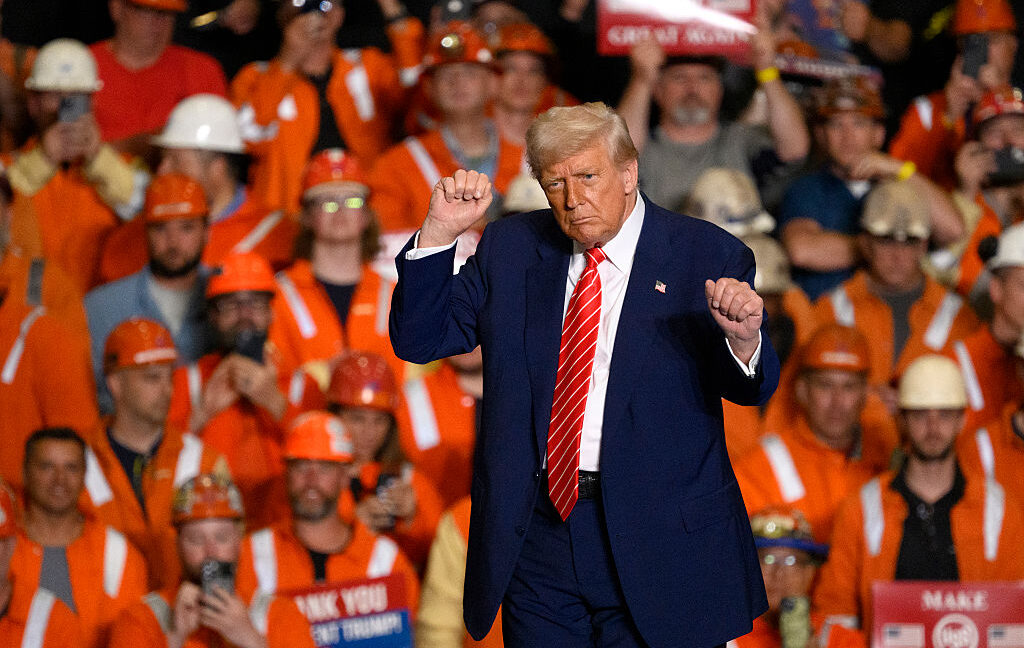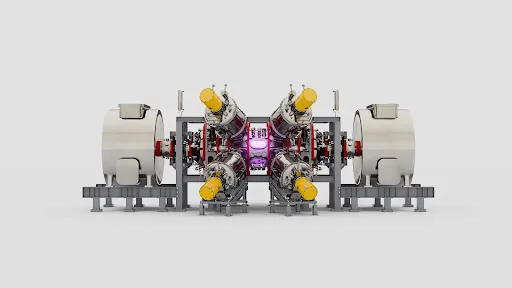The Carbon Removal Industry Is Already Lagging Behind Where It Needs to Be
It may be time to suck it up — and we don't just mean the carbon in the atmosphere. No, we're talking about reckoning with the sobering possibility that our attempts at capturing the greenhouse gas to stave off climate disaster are already hopelessly behind schedule, NewScientist reports. To illustrate, here's some simple numbers. The CO2 removal industry expects to hit a milestone of removing one million metric tons of CO2 this year. And companies across the globe have bought carbon credits to remove 27 million more (and more on these carbon credit schemes in a moment). That sounds like […]


It may be time to suck it up — and we don't just mean the carbon in the atmosphere.
No, we're talking about reckoning with the possibility that our attempts at capturing the greenhouse gas to stave off climate disaster are already hopelessly behind schedule, New Scientist reports, if they're not in vain entirely.
To illustrate, here're some simple numbers. The CO2 removal industry expects to hit a milestone of removing one million metric tons of CO2 this year. And companies across the globe have bought carbon credits to remove 27 million more, according to data from CDR.fyi cited in the reporting (more on these carbon credit schemes in a moment).
That sounds like a lot, but it really isn't. As New Scientist notes, the Intergovernmental Panel on Climate Change — the leading authority on these issues — concluded in a 2022 report that we need to be removing up to 16 billion tons of carbon, not millions, each year to keep the rise in global temperature from exceeding 1.5 degrees Celsius (2.7 degrees Fahrenheit) of warming by the middle of the century, past which the most drastic effects of climate change are believed to be irreversible.
"It's not scaling up as fast as it would need to if we are going to reach multiple gigatons by 2050," Robert Höglund at Marginal Carbon, a climate consultancy based in Sweden, told the magazine.
Carbon capture is not the be-all and end-all. The fact remains that humanity needs to drastically reduce its emissions, which probably means reorganizing society — or at least its energy production and consumption — as we know it. Simply removing the CO2 that's already there is more like a band-aid that buys us a little time; eventually, we'll need to rip it off.
For these reasons, some critics fear that carbon capture — and even more drastic interventions, like attempting to dim the Sun — could distract from the climate change's systemic causes. But there's a lot of enthusiasm for the approach all the same, both from scientists and investors. The IPCC acknowledged in its 2022 report that carbon removal was "unavoidable" — as in, essential to meeting climate targets.
One popular method of carbon removal is called direct air capture, which involves sucking the carbon straight from the air using massive industrial facilities. A more circuitous approach that's gaining steam involves extracting CO2 out of the ocean, freeing up room for the world's largest carbon sink to passively absorb even more of the greenhouse gas.
All of these initiatives, though, are basically just getting off the ground. And the corporate investment, which once promised billions of dollars in cash, seems to be cooling. More than 90 percent of all carbon removal credits sold this year were bought by a single company, Microsoft, New Scientist notes, probably to gloss over its egregious energy bill it's accrued from building loads of AI datacenters.
This also touches on the fact that the practice of buying carbon credits can be used as a means of corporate greenwashing. By paying to another firm to "certify" that they will remove a certain amount of carbon at some undetermined point in the future, a company can report a greener carbon balance sheet without actually reducing its emissions.
In any case, staking the industry's hopes on corporate munificence is a dicey prospect indeed.
"I have been raising the alarm for about a year and a half," Eli Mitchell-Larson at Carbon Gap, a UK carbon dioxide removal advocacy organisation, told New Scientist. "If we're just waiting for the waves of free philanthropic money from corporations to fill a hole on their sustainability report, we're not really going to solve the problem."
More on climate change: Scientists Just Found Who's Causing Global Warming
The post The Carbon Removal Industry Is Already Lagging Behind Where It Needs to Be appeared first on Futurism.















































































































































































![[The AI Show Episode 150]: AI Answers: AI Roadmaps, Which Tools to Use, Making the Case for AI, Training, and Building GPTs](https://www.marketingaiinstitute.com/hubfs/ep%20150%20cover.png)
![[The AI Show Episode 149]: Google I/O, Claude 4, White Collar Jobs Automated in 5 Years, Jony Ive Joins OpenAI, and AI’s Impact on the Environment](https://www.marketingaiinstitute.com/hubfs/ep%20149%20cover.png)































































































































































































.png?width=1920&height=1920&fit=bounds&quality=70&format=jpg&auto=webp#)
















































-1280x720.jpg?width=1920&height=1920&fit=bounds&quality=70&format=jpg&auto=webp#)






















_Zoonar_GmbH_Alamy.jpg?width=1280&auto=webp&quality=80&disable=upscale#)
















































































































![WWDC 2025 May Disappoint on AI [Gurman]](https://www.iclarified.com/images/news/97473/97473/97473-640.jpg)
![Apple to Name Next macOS 'Tahoe,' Switch to Year-Based OS Names Like 'macOS 26' [Report]](https://www.iclarified.com/images/news/97471/97471/97471-640.jpg)
![Sonos Father's Day Sale: Save Up to 26% on Arc Ultra, Ace, Move 2, and More [Deal]](https://www.iclarified.com/images/news/97469/97469/97469-640.jpg)



































































